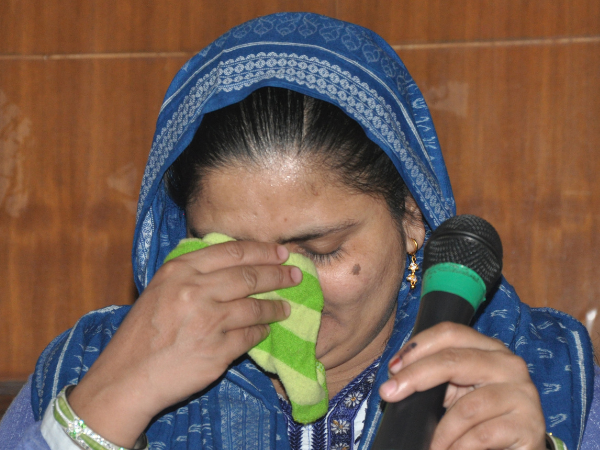- Tuesday, April 22, 2025

By: Shubham Ghosh
Justice Bela M Trivedi, a part of the Supreme Court bench that was to hear the plea of Bilkis Bano challenging the remission and release of 11 convicts in the 2002 case related to her gang rape and murder of several of her family members, including little daughter, on Tuesday (13) recused herself from the hearing.
The matter was adjourned and will have to be listed in a fresh branch.
As soon as the bench comprising Justices Ajay Rastogi and Trivedi took up the matter for hearing, the former said that the latter would not like to hear the case.
Supreme Court judge Bela Trivedi was appointed as a judge on 15 Feb 2011 in the Gujarat HC. Delhi HC Judge Suresh Kait was appointed as a judge on 5 Sept 2008. He is senior to Trivedi. But Trivedi was made the judge of the Supreme Court. Don’t know why! #Casteist_Collegium pic.twitter.com/dVsX7XLF6a
— Dilip Mandal (@Profdilipmandal) November 18, 2022
“List the matter before a bench in which one of us is not a member”, the bench headed by Justice Rastogi said.
The bench, however, did not specify any reason for Trivedi’s recusal.
Bano, who was pregnant at the time of the gangrape two decades ago, had challenged the premature release of the convicts by the government of Gujarat on August 15 in two separate petitions. She said the state government passed a mechanical order that completely overlooked the requirement of law as laid down by the country’s apex court.
Bano, who was 21 then, faced the ordeal during the riots in the western Indian state of Gujarat that followed a train-burning incident in Godhra that killed many Hindu ‘karsevaks’ (those who do service).
“The decision to once again stand up and knock on the doors of justice was not easy for me. For a long time, after the men who destroyed my entire family and my life were released, I was simply numb. I was paralysed with shock and with fear for my children, my daughters, and above all, paralysed by loss of hope,” she had said while filing the petitions.
Videos went viral showing the convicts getting heroes’ welcome from activists of a Hindu right-wing outfit in Gujarat and the incident caused a massive uproar throughout the country with the civil society objecting to the release.
The probe in the case was given to the elite Central Bureau of Investigation (CBI) and the trial was transferred to a court in the neighbouring state of Maharashtra by the Supreme Court.
In January 2008, a special CBI court sentenced the 11 to life imprisonment. The conviction was later upheld by the Bombay High Court and the Supreme Court.
However, the Gujarat government told the top court in October that it had the approval of the Narendra Modi government for the release of the convicts and cited their “good behaviour”. Modi was the chief minister of Gujarat when the riots took place.
However, police complaints showed that the convicts were accused of threatening and harassing witnesses while they were out on parole, NDTV, which saw the complaints, said.
Between 2017-2021, at least four witnesses in the case registered complaints against the convicts.